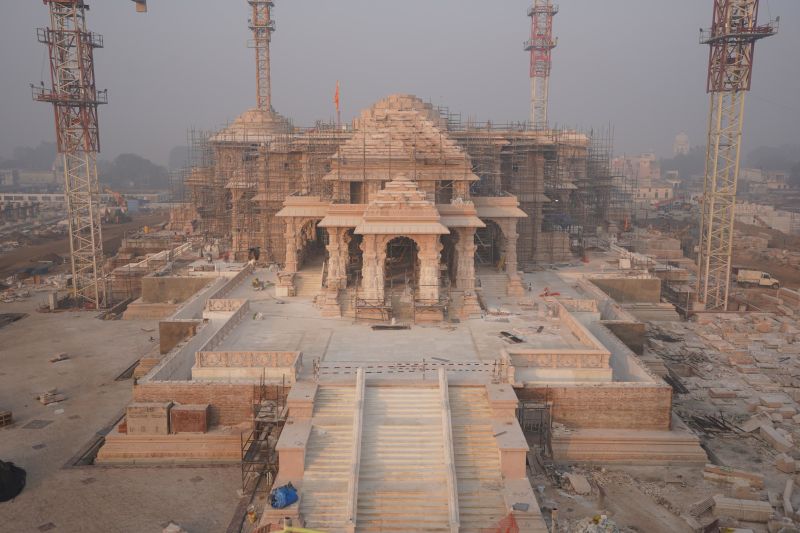The grand city of Ayodhya, found on the banks of the sacred Sarayu River in India, is known worldwide for its deep connections with Hindu mythology, being the birthplace of Lord Rama. Touted as a Hindu pilgrimage center, the city is now bracing itself as the inauguration of the highly anticipated Ram Temple draws near. However, this immense moment of celebration for the Hindus, who have spent decades of legal battles to get to this milestone, evokes mixed emotions for the town’s Muslims. The Muslims of Ayodhya confront an intertwining web of grief, anxiety, and apprehension associated with the nearing inauguration.
Amid the shared streets, markets, and squares of Ayodhya, the stories of grief and anxiety among the Muslims, making a considerable population of the city, often go untold. Etched in the memories of some older residents are the violent communal riots of 1992, following the demolition of the Babri Masjid, an event that still casts a shadow over the city today. Friends became foes, neighbor turned against neighbor, and the town was etched with the scars of religious conflict. Today, as the inauguration of the Ram Temple approaches, these memories stir up feelings of grief as well as fresh concerns about what lies ahead.
Throughout the years, Ayodhya Muslims have fostered a spirit of resilience, even as they continue to confront vulnerability and marginalization. Their struggle for recognition and respect in the predominantly Hindu city, particularly after the historic judgment of India’s Supreme Court in favor of the temple construction in 2019, has bolstered their sense of endurance and community. Yet, the nearing inauguration of the temple has made palpable the anxiety among them, furthering these unanswered questions and concerns about their safety, security, and societal prospects.
Furthermore, there is an air of apprehension among the Muslim youth. With the academic opportunities and the prospect of better futures often leading them to bigger cities, the escalating anxieties surrounding the inauguration question the inclusionary promise of the city. However, with a change in generational perspectives, some see it as an opportunity to construct an encompassing narrative of healing that goes beyond just coexistence.
The Muslim women of Ayodhya are also part of this emotional whirlwind. The critical role they play in their households and communities makes them uniquely vulnerable to the psychological stress of conflict. Ensuring the wellbeing of their families, protecting their children from the tension, and trying to maintain peace in their surroundings prove to be an arduous task against the backdrop of yet another historic moment.
In the face of grief and anxiety, the Muslims of Ayodhya also prove the richness of their resilience. The faith community has opened up channels of dialogue with their Hindu neighbors, hoping to build understanding and cooperative alliances. They’ve also turned towards education: hoping to instill values of respect, tolerance, and coexistence in the younger generations, this community proves that they are not just passive recipients of societal change but active responders bent on forging a path towards a peaceful future.
These apprehensions, mingled with grief and resilience, permeate the lanes of Ayodhya. As the city prepares to turn a new page in its religious history, the Muslims of Ayodhya are also gearing for a future that may present both challenges and opportunities. They remain hopeful of achieving a harmonious coexistence, leveraging the strength of their resilience as they confront this unfolding chapter of Ayodhya’s socio-religious history.




